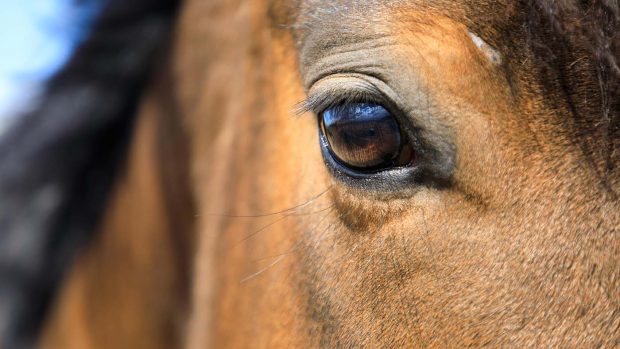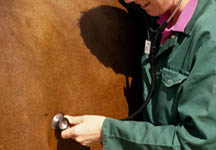The Animal Health Trust (AHT) has re-launched an appeal to raise £10 million for the redevelopment of its laboratory complex and cancer research unit.
The main focus of the redevelopment of the laboratory complex is the equine infectious diseases unit, which is expected to account for as much as £5 million of the funds.
Infectious diseases in the horse are a major component of the AHT’s work, in particular the development of vaccines and keeping vaccines up-to-date. Similarly to some human infectious diseases, viruses such as equine influenza are constantly mutating, and the vaccine has to change accordingly.
“We are past the point of simply looking at infections,” explains Ted Chandler, Chief Executive of the AHT. “We want to know why an infection is infectious, and which elements can be used to produce immunity in a vaccine.”
The laboratories have been in need of work for a considerable period, with some researchers working in Portakabins on the site, but priority has until now been given to other vital needs, such as an equine hospital and an MRI unit to look at horses’ (and other animals’) legs.
“We’ve known for a long time that this work has to be done”, says Chandler, “not least because the AHT stands at the forefront of the industry, and in order to maintain that position, the laboratories and equipment that we use have to keep pace with scientific progress.”
Almost £3 million of the fundraising effort is expected to go towards modernising the equine infectious diseases unit, which is still housed in a 1960s pre-fab.
Another major feature of the AHT’s work is their research into animal cancers, and the trust is hoping to set up a new home for its cancer genetic work. This will bring together all the elements of cancer research – pathology, histology etc., so that the trust can push ahead in this field.
“We deal with animals with tumours that vets in practice can’t deal with,” says Mr Chandler. “But our work doesn’t stop there – we then analyse the tumours and look at the genetic structure – how the cells have changed to become cancerous – and the carrier state.
Creating the infrastructure for, and inserting a new cancer research unit is expected to cost up to a fifth of the total target. The AHT has already raised nearly £1 million, and hopes to have gathered funds for the redevelopment by early 2007.



